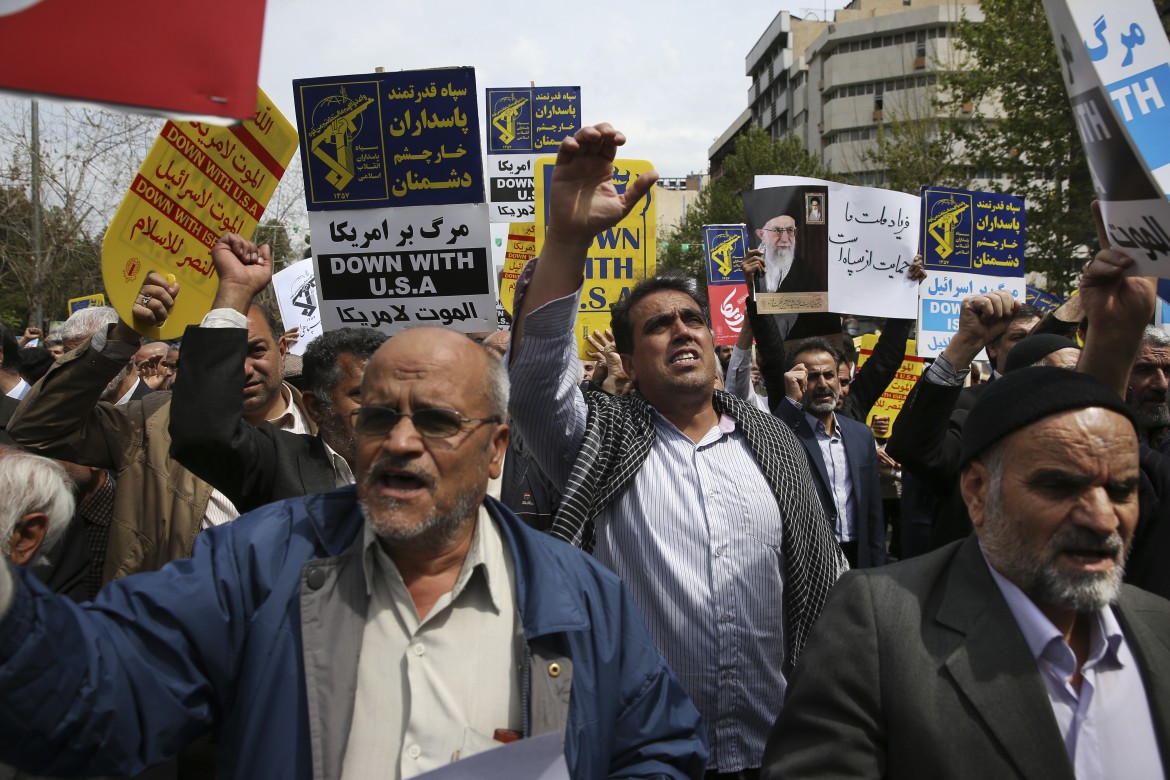Analysis
Trump tightens the rope on Iran, Tehran threatens oil blockade
The US president is attempting to dictate oil export terms for a block of countries, provoking support from allies and indignation from others. Iran is feeling increasingly backed into a corner.

Forced into a corner by the irresponsible economic sanctions enacted by Donald Trump, on Monday Iran reiterated its threat to set up a blockade of the Strait of Hormuz, a route through which almost one-third of all the crude oil transported by sea currently passes. General Alireza Tangsiri, the commander of the Navy of the Revolutionary Guard, has said so in no uncertain terms: “According to international law, the Strait of Hormuz is a marine passageway, and if we are barred from using it, we will shut it down,” he warned. If there are threats against Iran, he added, “we will not have the slightest hesitation to protect and defend Iran’s waterway.”
Tangsiris’s warning came just as the White House announced its intention to cut Iranian oil exports to zero, ruling that starting from May 2, the US will not renew the 180-day exemptions currently granted to eight countries—including Italy—allowing them to import oil from Iran without becoming subject to US sanctions. The Conte government has already announced it would comply with Trump’s dictates, together with “Socialist” Greek Prime Minister Tsipras, and stop importing oil from Iran. Taiwan has also announced it would end its purchases of Iranian crude.
However, the other five countries which had received the waivers so far—China, India, Turkey, Japan and South Korea—have not ceased their oil imports from Iran. Beijing, whose imports from Iran cover around half of its crude oil needs, has said it would “protect the legitimate rights of Chinese firms.” Likewise, Turkey is refusing to bow to Washington’s pressure: Foreign Minister Cavusoglu has warned that the latest US decision “will not serve regional peace and stability, yet will harm Iranian people. Turkey rejects unilateral sanctions and impositions on how to conduct relations with neighbors.”
It is clear that Tehran would only go as far as blocking the Hormuz Strait as a last resort. The Iranians know that this step would give Washington and its main allies in the Middle East—Israel and Saudi Arabia—a perfect pretext to launch a broad military offensive against the Islamic Republic. At the same time, Iran, suffering under US sanctions, could seek military confrontation as an avenue to alleviating the external pressure. There are signals pointing in that direction: Ayatollah Ali Khamenei, Iran’s supreme leader, has appointed Hossein Salami—a veteran of the Iran-Iraq war of 1980-88, and known as a hardliner—to replace General Mohammad Ali Jafari at the head of the Revolutionary Guard.
Salami’s appointment shows how Trump’s aggressiveness is empowering the hawks in Iran’s political class, at the expense of the more moderate currents backing President Hassan Rouhani, who supported the 2015 signing of the agreement on Iran’s nuclear power generation program with the five members of the UN Security Council plus Germany. One year ago, the US decided to abandon the agreement, opening up a crisis that could plunge the Middle East into a new war. We should also keep in mind the effect of the surge of political tensions on the price of oil, even though Saudi Arabia and, surprisingly, Iraq—Tehran’s erstwhile ally—have said they were ready to increase their own oil production to make up the difference if Iranian exports are cut to zero.
Trump, who claims his aim is to prevent Iran from producing nuclear weapons and force it to stop its missile program, found yet another pretext Monday to attack John Kerry, Secretary of State during Barack Obama’s second term and one of the main protagonists of the signing of the Iran nuclear deal in 2015: “Iran is being given VERY BAD advice by @JohnKerry and people who helped him lead the U.S. into the very bad Iran Nuclear Deal,” Trump tweeted, going as far as accusing the former Secretary of State of a supposed “big violation of the Logan Act,” a law that criminalizes negotiations undertaken by unauthorized persons with foreign governments that are in conflict with the United States.
Meanwhile, Benjamin Netanyahu is applauding Trump’s moves. The US administration is implementing precisely the measures that the Israeli prime minister had demanded for many years, both against Iran and against the Palestinian people, with the aim of setting up a “new order” in the Middle East. “We stand by the determination of the US against Iranian aggression and this is the right way to stop it,” the Israeli leader said Monday.
Originally published at https://ilmanifesto.it/trump-stringe-la-corda-delle-sanzioni-attorno-al-collo-delliran/ on 2019-04-23
